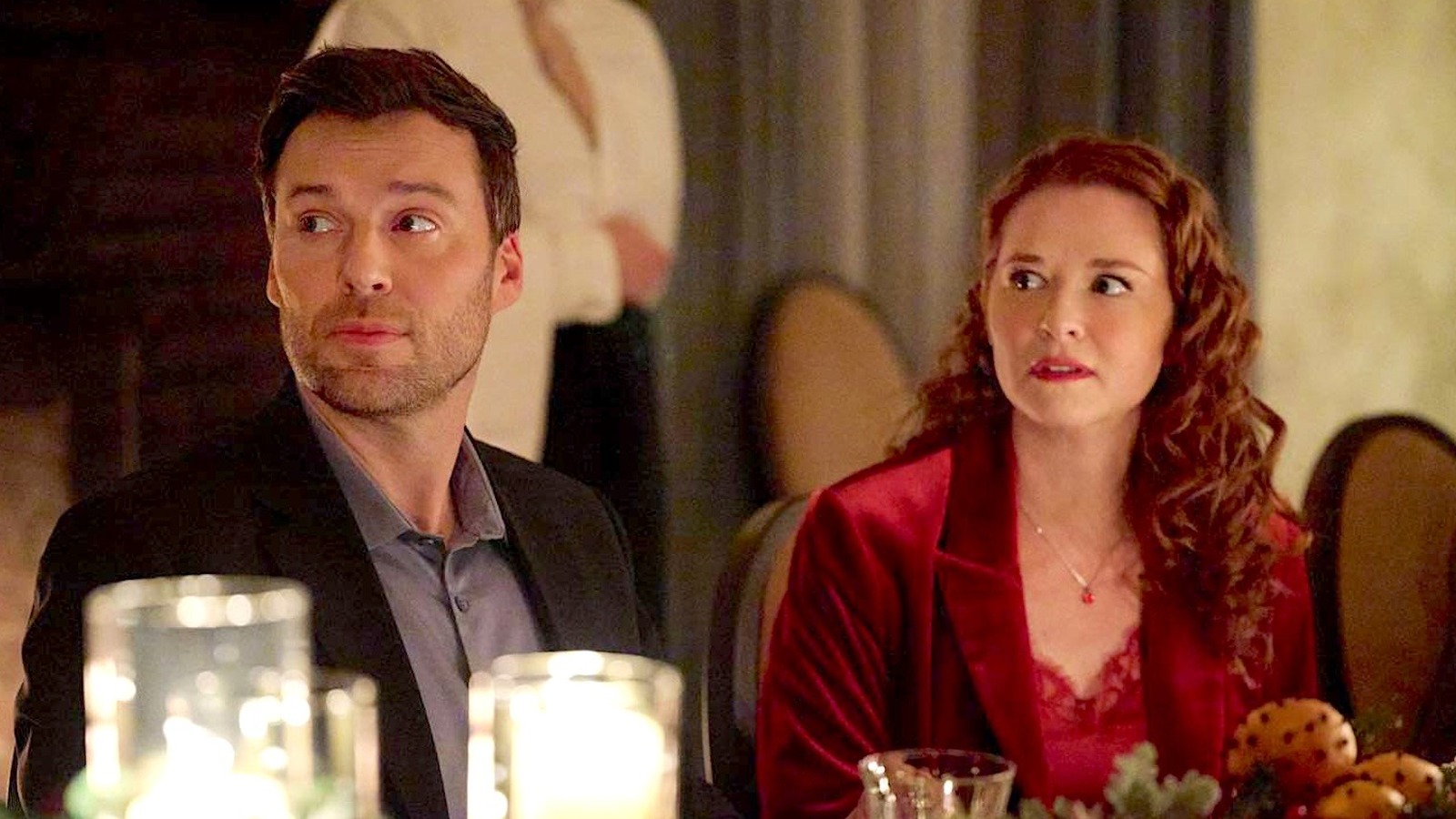In “Psychological Something-ism,” there’s a shared vulnerability at play, and a willingness to try and confront it.
Let’s start with Alice. Her dad’s bombshell about Mr Winston, her mother’s drunk-driving killer, has been all-consuming, and the f-bomb-laden letter only slightly helped ease the emotions. Paul’s advice about not going to see him again is useful but at no point does she convince anyone – not the audience, and certainly not Paul – that her promise is sincere.
Paul says he’s having a strange déjà vu but hers is much less strange. We’ve seen instances of Alice’s slightly withdrawn shows of emotion: look no further than the rapid hug at the end of her heartfelt conversation with Jimmy in the season premiere. But the flashback to Tia making fun of her when she doesn’t return the “I love you” mirrors perfectly Summer being far less invested in the same exchange. Is it an attachment fear after the worst trauma imaginable? Or simply that lack of any closure?
Alice opts to tackle the latter. She told Summer in the previous episode that she wished Winston had shown up at her house so she could say the things she wants to say to him. The letter helped. But not enough, not quite right. Just as Winston’s apology in the café isn’t enough, or right.
It’s hardly surprising that Paul’s advice proves correct: How could that meeting ever go the way Alice would want? What could she say to this man – what could he say to her? – that eases the pain she’s felt for years? Brett Goldstein’s remarkably sympathetic and softly spoken here, playing a man that, from our characters’ perspectives, has been reduced to a one-dimensional figure: a reckless criminal. We see him here as something completely different, a vulnerable, contrite man eager to make peace with the person whose life he ruined.
Alice doesn’t give him that, and doesn’t give herself that. Lukita Maxwell is great at the two sides of this conversation: first the calmed, listening state; then in full-on rage mode. To Alice, those screams are the least he deserves. Winston knows it too, and there’s a nod of acceptance after she storms out.
We know from her father’s past that people in distress can do reckless things and kissing neighbour Connor(*), who has just struck up a romance with Summer, is certainly that. Angie McMahon’s “Letting Go” is perhaps a little on-the-nose an accompaniment for what is, in context, a remarkably sweet scene, but it’s another reminder of one of this show’s main messages: that emotions are difficult, and finding ways to simply cope with them isn’t a healthy long-term strategy.
Paul needs surprising help to find his own healthy long-term strategy. Going with Julie to visit her husband Elliott, suffering with dementia and living in a care facility, is eye-opening. It seems like there are two sides to one fear at play here: As he watches the two of them sit together, he seems scared of becoming like Elliott. But he vocalises to Julie a more pressing fear – that their situation becomes the same, and that she has to suffer taking care of him while his health declines.
It’s a valid fear. She’s operating as both his doctor and his lover when she ensures he’s taken his pills, reminds him to do exercise, keeps the unhealthy ice cream away from him. That’s a lot of strain to put on person. It’s somewhat harrowing to see Harrison Ford display that fear, given how regularly we’ve seen the gruffer, straight-talking, balanced side of his therapy.
The solution ends up being a halfway house, and he has Derek to thank. For all that Ted McGinley plays Derek as a source of dry humour, he offers sage advice here. Any situation that he and Liz can’t handle, they simply get out of. “So I’ll just remove the Parkinson’s” is Paul’s glib response, but it’s something he can, in a sense, do. So, by the episode’s end, he has a new doctor, and frees Julie from the burden of medical care in this loving relationship.
It’s not-so loving a relationship elsewhere. The charges against Grace for pushing Donny off a mountain are dropped due to his history of abuse, but she’s insistent that she deserves to be punished for what she did. Returning to Donny – who we see at physical therapy being needlessly cruel; kudos to Tilky Jones for making him seem so horrific – is her way of doing that.
So, it’s heart-warming to see the way Jimmy and Brian get her out of that situation. The witness statements Brian gathers provides a reminder of how loved and how valuable Grace is. It’s beautifully shot, with the friends sat in Brian’s spot, and it’s the reassurance she needs to move away with her sister.
It’s the catalyst, too, for Jimmy to take steps to re-establish his friendship with Brian. When we began the series, they were estranged. What’s evident in this episode is that distance has grown on both sides. But what’s also evident is that their distance is surface-level – that, deep down, neither of them want to be where they are, and both want to be better friends for each other. Seeing the two of them legitimately fall out mid-way through the episode is pretty destroying, but their Wednesday night dinner is the wholesome reunion they – and we – need.
Sean and his dad have what seems to be a less wholesome, but still significant, reunion. Sean and Liz encounter him by accident in their food truck business and, in a misguided effort to do good, she sells her share of business to him. From what we know of Sean to this point, his response is predictable, and this will pose a brand new dynamic and a brand-new problem in his road to recovery.
“Psychological Something-ism” is a deeply emotional episode, but a brilliant one, which feels essential to the course of this season – season two has started strongly.



.png)



